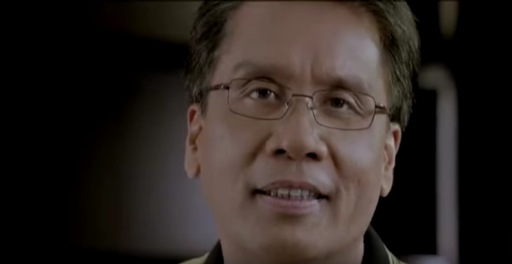The dramatic Mar Roxas

 Once
again, the creative geniuses behind the string of television
commercials of presidential aspirant and former Interior Secretary Mar
Roxas appear to be experimenting.
Once
again, the creative geniuses behind the string of television
commercials of presidential aspirant and former Interior Secretary Mar
Roxas appear to be experimenting.
The experiment is Roxas’s latest television commercial, where Roxas claims he is a person who is “all work, no drama.”
In fairness, this latest
commercial conveys clear signals—first, that the Roxas campaign group is
awash with cash; second, that it is more than willing to spend that
cash on the production and airing of expensive commercials.
The experiment on a new commercial, however, has its major downside.
First, it only further shows
the confusion in the candidate and in his creative people as to who he
really is and what his character is.
Second, the commercial, on one hand, calls attention to Roxas’s apparent character weakness.Third, the material, on the other hand, shows that Roxas’s creative group has not unearthed his true character and may have wasted their candidate’s single most important positive attribute.
Here’s why.
In the latest commercial, Roxas is made to claim that his life is without hugot—that he has no drama in life and can merely promise to create jobs and not steal from the people.
The ad and Roxas’s “no dramatics” claim could have been an effective material.However, there’s a problem.
Such a claim appears to be a negation or a denial of everything Roxas has shown the public in the past six years.
The Roxas that the public has been seeing is dramatic—a man with a persona full of drama.Consider the following images of Roxas that prominently played out in the public’s consciousness.
There was Roxas holding back tears as he reacted to reports confirming that his predecessor, Jessie Robredo, had perished in a chopper crash.
There was Roxas speaking before
the police in the aftermath of the Mamasapano incident, his voice
cracking as he emotionally—and dramatically—asked the force to join him
in the National Anthem.
There was Roxas, weeping with the widows of the Mamasapano massacre.
There was Roxas, weeping at the
tomb of his father and grandfather prior to his acceptance of the LP
nomination, as television cameras rolled.
There was Roxas emotionally—and dramatically—speaking before the LP
faithful at Club Filipino, his voice cracking and his eyes on the verge
of tears, as he announced his choice for vice president, Leni Robredo.
Roxas, too, was dramatic in his
TV commercial prior to this “no drama” material. This is the ad where
his creative people tried to link him to supposed gains of the daang matuwid (straight
path) and where Roxas speaks with an unusual low-pitched, low-decibel
voice. That may have been a departure from Roxas’s usual hysterical tone
but dramatic, no less.
So, the claim that Roxas is a
“no drama” person appears to be misleading. He is full of drama—just not
the kind that touches the heart of the common Filipino.
There is a major disconnect
there. By being made to claim that he is not “dramatic,” Roxas’s
creative people may have merely cemented the perception that their
candidate is “plastic.”
The disconnect leads to the
same recurring conclusion—that Roxas’s campaign group is still confused
as to which version of Roxas it can sell and which the public just might
buy.
In the “no drama” ad, Roxas
claims he will not steal. No one said he will. That was useless. The
issue with Roxas is not that he has kleptomaniac tendencies. People know
he will not steal.
The issue is simple – we don’t know the real him. Because we don’t know the real him, we can’t make up our minds about him.
People want authenticity. Roxas’s creative group has, so far, not given that to the public.
Some observers say Roxas’s “no
drama” ad was meant to be a jab at his rivals and to establish a
contrast with the frontrunners in the presidential race.
If that were true, then the ad
is an epic fail. It failed to fan the issues against his rivals.
Instead, it revived the public’s issues and reservations against Roxas.
Did it set him apart from the pack? It did. But not the way his creative geniuses may have wanted it.
The commercial may have merely proved once more that Roxas is an unfeeling, non-empathetic person.
People don’t want that. What they want is a leader who knows how they feel.
After all, Filipinos lead dramatic lives. We can’t help it. Our struggle to rise above poverty cannot but be dramatic.
Roxas says he does not have such drama.
Sure. We know. After all, he has never been poor.
No comments:
Post a Comment